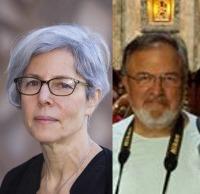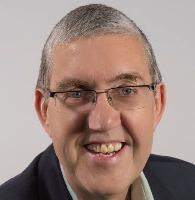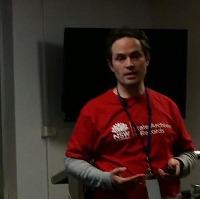DPC
CIE TC8-15: Colour Imaging for Digital Preservation
Robert Buckley and Melitte Buchman are members of CIE TC8-15 – Archival Colour Imaging Technical Committee where Melitte is the Chair.
CIE TC8-15 is the CIE Technical Committee on Archival Colour Imaging. Overall the CIE is a technical, scientific and cultural non-profit organization in the field of light and lighting, encompassing fundamental subjects as vision, photometry and colorimetry. What does this have to do with the DPC and digital preservation? To the DPC, digital preservation refers to the series of managed activities necessary to ensure continued access to digital materials for as long as necessary. Basic activities are the good capture of physical originals and keeping the digital data safe and secure. CIE TC8-15 exists in the zone where the two organizations overlap for the accurate capture (or digitisation) of colour originals.
The TC’s Terms of Reference are “to recommend a set of techniques for the accurate capture, encoding and long-term preservation of colour descriptions of digital images that are either born digital or the result of digitising 2D static physical objects including documents, maps, photographic materials and paintings.”
A Case Study – WhatsApp Records Capture
Jingwen Yang is Records Management Officer for the United Nations Framework Convention on Climate Change (UNFCCC) in Bonn, Germany
Digital technologies are radically transforming business practices in the workplace as organizations become more mobile and virtual. Led by the increased prevalence of smartphones and BYOD (Bring Your Own Device) in organizations, more and more employees are turning to consumer messaging apps to collaborate with their colleagues and customers. Although an organization can benefit from this adoption, this also generates a huge amount of unstructured data outside of the technical platform managed by the organization, creating new challenges in digital records management, information security and information privacy protection.
Among a diverse landscape of messaging apps, WhatsApp stands out as one of the most popular: in 2018, WhatsApp reported more than 450 million daily active users, and it has been downloaded and installed by over 1.2 billion people worldwide. WhatsApp provides fast, simple, and secure services at no cost, allowing users to send text messages, voice messages, pictures, documents and other files as well as place voice calls and video calls to other WhatsApp users, all for free. It is expected that the unstructured data generated by WhatsApp alone will double in volume within the next 4 years.
Digital is an Illusion, but Film is a Reality?
Sanchai Chotirosseranee is Deputy Director of the Film Archive (Public Organization) in Thailand
When it comes to the digital age, most people believed that there is no need to preserve original materials, once they are digitized. When we had a funding campaign for a film storage a decade ago, Dome Sukvong, the founder of the Thai Film Archive, used the motto inspired by a famous Thai saying that the “Digital is an Illusion, but Film is a Reality” to champion an awareness about the importance of preserving analogue prints in the digital world.
Good Morning World Digital Preservationists!
A new day is dawning on this part of planet earth… but this day is like no other, this day is special, this day is all about digital preservation and this day is ours!
Ok, that sounded a bit full on and slightly arch-baddy, but it’s actually ALL good. All of it!
A review of the Chinese Conference on Digital Preservation (CCDP) 2018
Zhenxin Wu is Professor of the Information System Department and Deputy Director of the Digital Preservation Center of Chinese Academy of Sciences at the National Science Library in Beijing, China
回顾CCDP2018:汇聚多方力量,应对新型数字内容资源长期保存挑战
十月底在北京举办的2018年数字资源长期保存全国学术研讨会非常成功,获得了很好的反响。作为会议的组织者,很高兴看到数字资源长期保存在中国国内得到越来越多的关注,越来越多的人和机构开始从事研究与实践。我也希望通过世界数字保存日(World Digital Preservation Day),让更多人了解中国保存者所作的努力。
数字内容资源已成为科技、教育和文化传承的主流资源,它们的长期保存已经成为各国信息基础设施战略的重要部分。科技部已经启动国家数字科技文献资源长期保存系统建设,在中国本土自主长期保存重要的国内外科技期刊、会议、学位论文等文献数据库。与此同时,数字内容的形态和应用正在迅速变化,数字音视频、数字图像、科学数据、社交媒体、计算机辅助设计、数字艺术、数字人文资料、开放教育资源等迅速成为知识创作、传播和利用的常规形态,成为人类知识和文化的自然和重要的组成部分。
Digital Preservation Song Challenge
Serena Coates is Coordinator of Digital Preservation (Preservation Services) and Rachel Merrick is Metadata Specialist at State Library of Queensland
With more conferences being held south of the equator (iPres in 2014, IDCC in 2019) for the first time, and local communities of practice growing in numbers (Australasia Preserves, and the National and State Libraries of Australia DP CoP), the digital preservation community is Australasia is growing stronger by the minute. So why not put this growing enthusiasm to music?
A recent thread on the Australasia Preserves web forum posed the question – “Does AusPreserves need a theme song?”. A couple of DP themed songs already exist, but the creative juices got flowing, and ideas were thrown in to the mix – “If I Could Turn Back Time” (Cher), and “Born this Way” (Lady Gaga) were put up as two possible candidates.
On behalf of the NSLA community of practice, we took it one step further, and issued a song challenge – to create a parody of an existing song, or write an original song with the theme of digital preservation. More ideas flowed - “Baby One More Time” (Britney Spears), and “[Files] Will Survive” (Gloria Gaynor).
A Greener Film Archive
Janice Chen is Archive Officer at the Asian Film Archive in Singapore
Much has been written about the escalating carbon footprint arising from digital consumption and its resulting environmental impact. The U.N. Intergovernmental Panel on Climate Change (IPCC) reported that the world needs sweeping changes to energy, transportation and other systems to hold global warming to 1.5 degrees Celsius.[i] The bleak future facing our world and the devastating natural disasters in 2018 that have hit Indonesia, the Philippines, Japan, Taiwan, and other parts of the world, inspired the thoughts of this piece.
The Maturing of Digital Preservation
Ross Harvey is Professor at Monash University in Melbourne, Australia
I’ve been thinking lately about the maturing of digital preservation. Exactly when it was born is difficult to determine. Wikipedia’s ‘Timeline of Digital Preservation’[1] starts in 1972, and Peter Hirtle suggests ‘at least the 1960s’.[2] Other contenders include the establishment of data archives in the 1960s. But although its precise age is debatable, we can agree that digital preservation has been around long enough to have developed processes, standards, theories, and ways of thinking that the digital preservation community generally accepts. For example, that the OAIS Reference Model is the basis for digital preservation systems, or that we need geographically-distributed copies – although there is no consensus about how many.
The importance of digital preservation
Richard Ovenden is President of the Digital Preservation Coalition, and Bodley's Librarian at The Bodleian Libraries, University of Oxford
I am really pleased to be celebrating World Digital Preservation Day (#WDPD2018) in Amsterdam, with the Netwerk Digital Erfgoed at the Annual Digital Preservation Awards event at the Amsterdam Museum. #WDPD2018 succeeds International Digital Preservation Day and aims to celebrate the work that is done across the globe to protect information created in digital form, and to mark the efforts made by the communities of practice that work in this vitally important area.
Automation in digital preservation
Richard Lehane is an archives and recordkeeping consultant with Recordkeeping Innovation, Sydney, Australia. Next year he'll be joining the IAEA's Archives team in Vienna, Austria
When I find spare moments, I work on siegfried, a file format identification tool like DROID and fido. I've been tinkering on it now for over five years. Automation has been critical for me to sustain the project; otherwise I just wouldn’t be able to attend to all the things that need doing, besides improving the tool itself. So far I’ve automated:
- testing,
- building and publishing releases,
- updating signatures,
- profiling the codebase,
- and benchmarking.
Automating these processes isn’t just about relieving me of manual work and freeing up time, it is also about putting in safety nets so that I can dive in and make changes knowing that any serious errors or regressions will surface in the tests and benchmarks.








































































































































